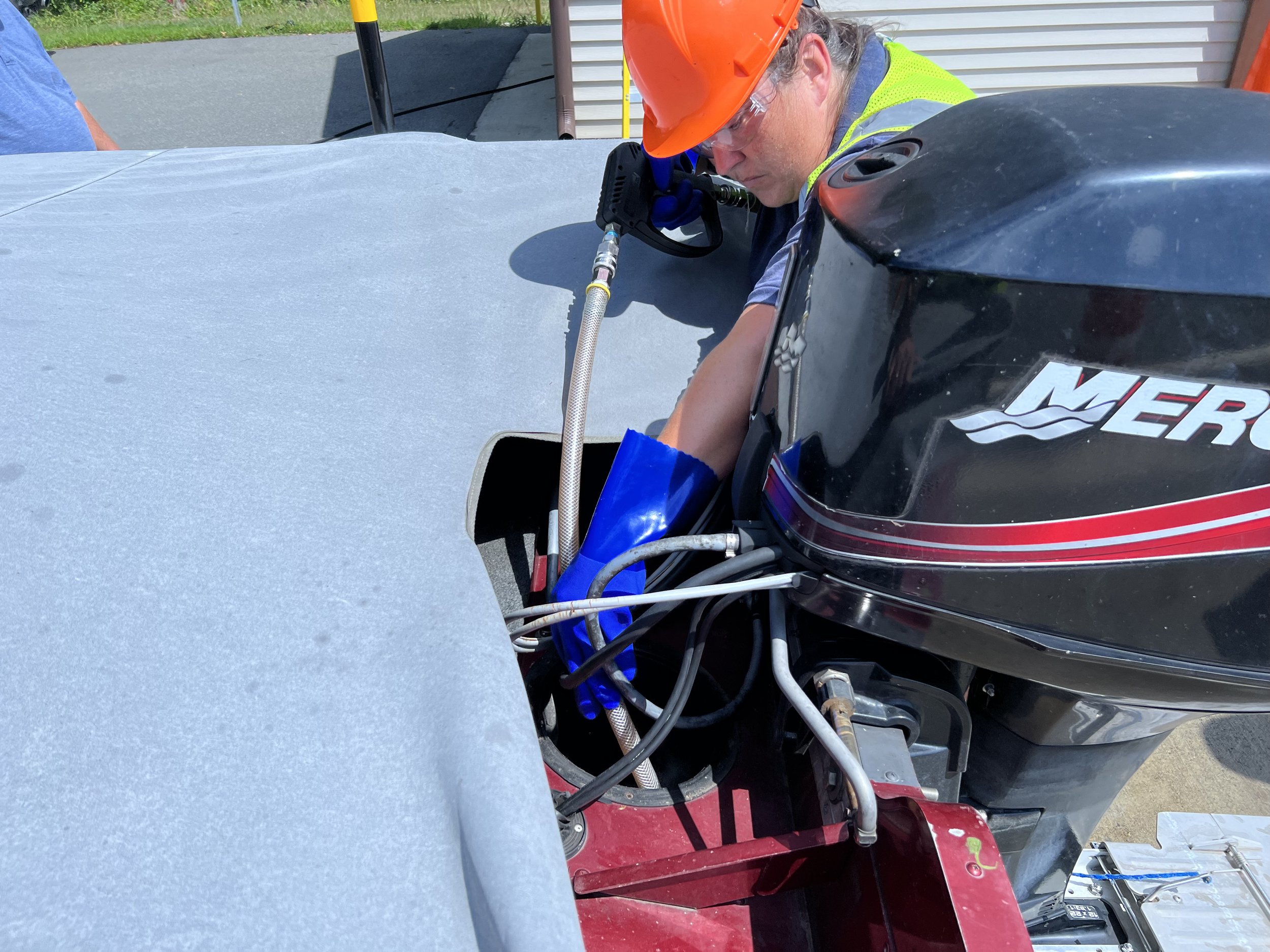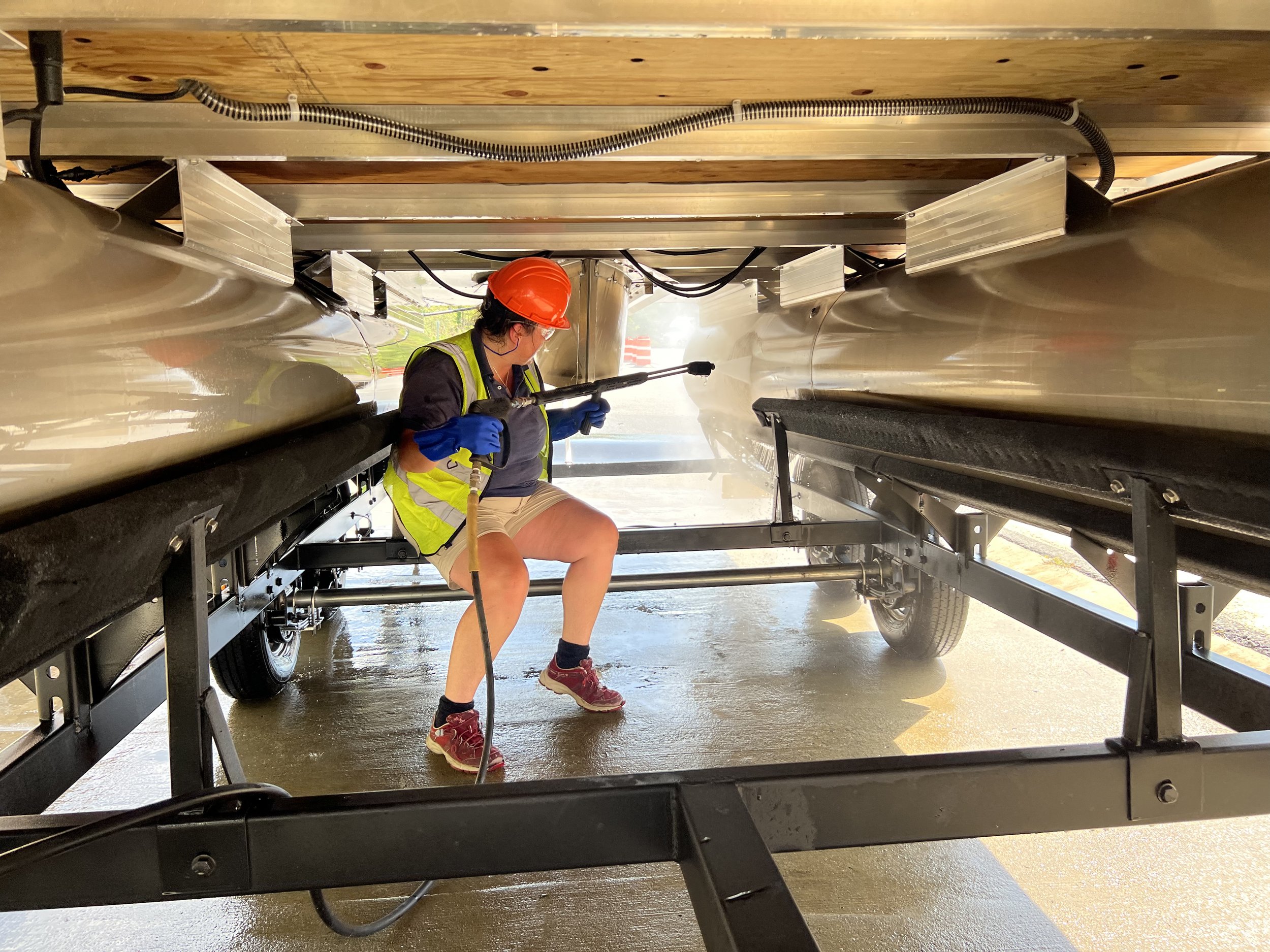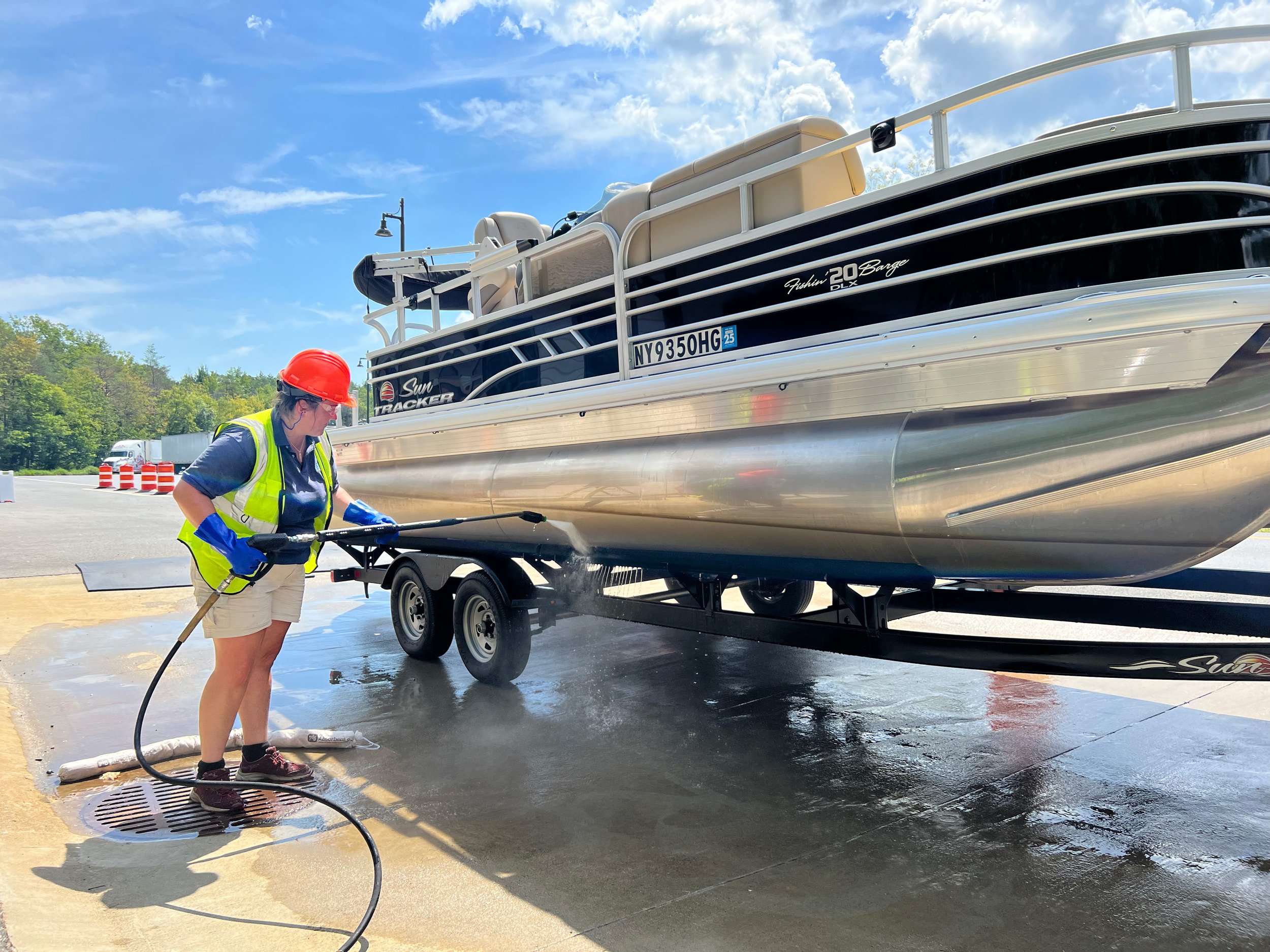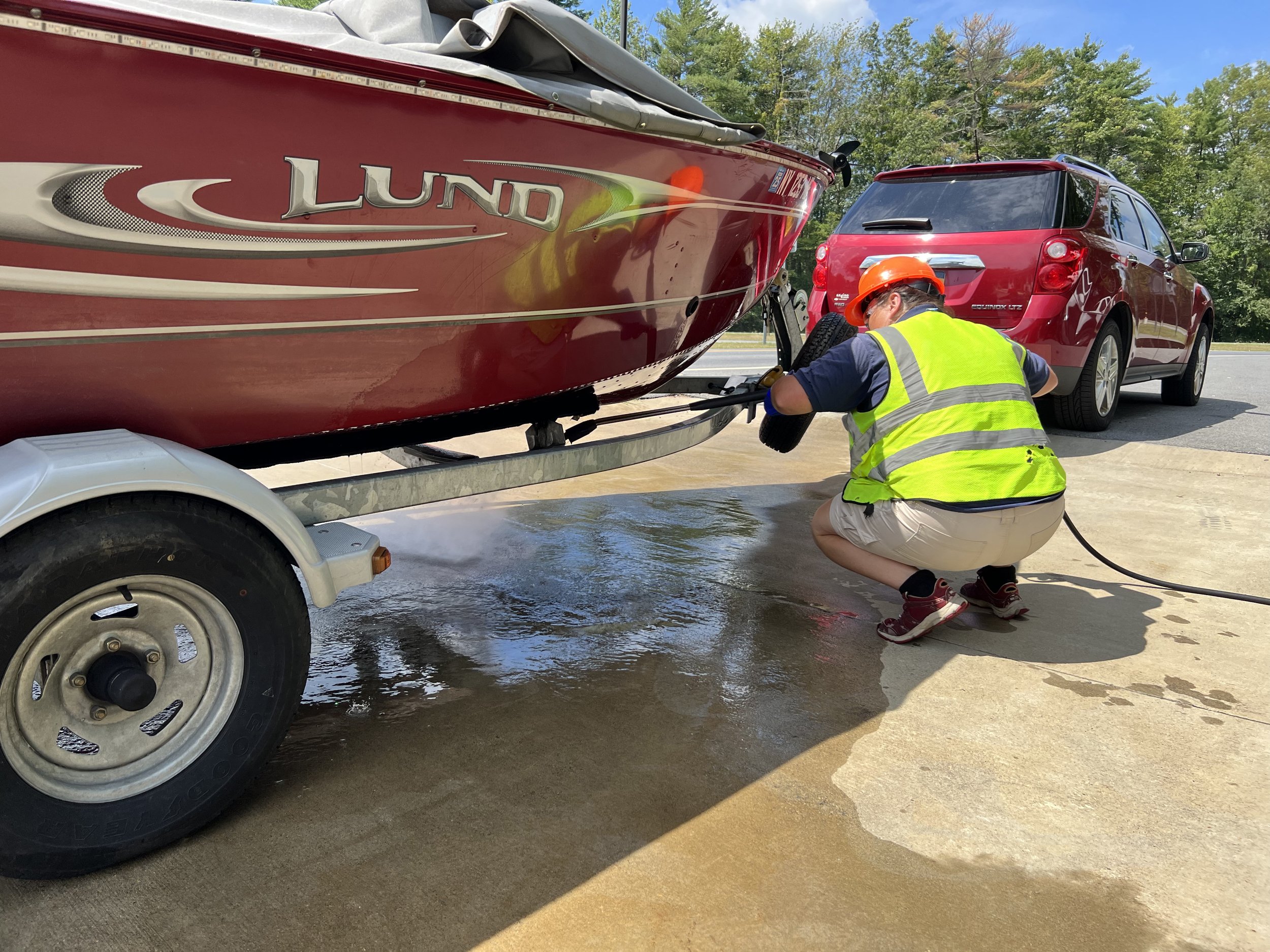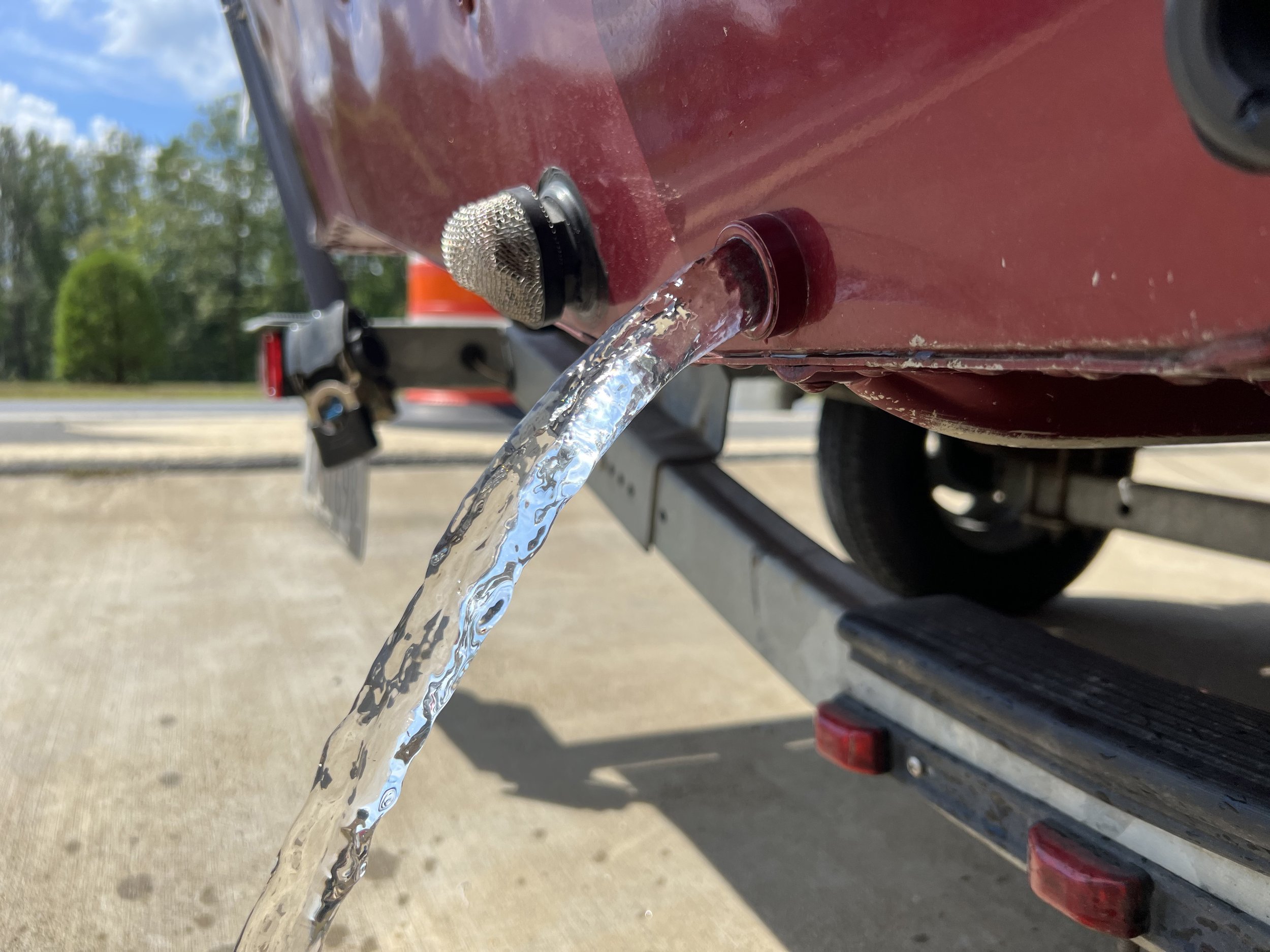L’Amour at the Launch
Inspecting and decontaminating vessels of all imaginable types gives us the much-appreciated opportunity to view an amazing variety of watercraft and to meet a broad spectrum of genuinely terrific water enthusiasts. In 2022, we saw everything from jaw-droppingly gorgeous fishing boats with unimaginable candy flake finishes to personal watercraft over a decade old, which were cosmetically indistinguishable from models fresh off the production lines, to color-coordinated towing rigs pulling brand new boats and trailers of matching hue (and receiving their first launch ever!), to meticulously preserved mahogany speedsters from the 1930’s, to a restored and previously ocean-going fishing trawler from the 1960’s, to handmade Adirondack guide boats and canoes, to double-decker pontoon boats which actually had second stories where slides would be installed and personal mini waterparks would be created out on our waterbodies. The vessel's owner’s stories were always interesting, ranging from a plethora of Blue Line locals to international visitors from Canada, Poland, India, Southeast Asia, and even Ukraine. But one particular boater’s story of determination has stuck with me even stronger than most.
Relatively early in the season, a young couple arrived at one of the launches where I was easing a brand new steward into their new position, towing a positively ancient-looking aluminum skiff on an even more ancient-looking trailer from the previous millennia. The trailer was so “mature,” - that is, it was equipped with coil springs instead of the now nearly universal leaf springs which are found on trailers – making it quite clear this equipment had seen some things and had enjoyed a few experiences. Interestingly enough, this mature rig had a brand new 25 hp Mercury outboard on its stern, immediately raising my interest even further. Why in the world would such a well-used vessel have such an expensive outboard attached to it?
Me being me, I engaged the owners in conversation as I was going through the inspection process prior to launch, and I learned the boat and trailer had been given to their present owner for free, but it was sans motor. So, the proud new owners had plunked down for a really great (and far less-polluting) outboard for their cherished FREE boat and trailer – a decision I thought was quite wise. After inspecting for AIS and chatting for a few minutes, the happy couple launched their vessel and quickly disappeared from view. For a grand total of about 15 minutes.
Fifteen minutes later, this same couple and their “experienced” rig with a brand new outboard were back in the launch. Me being me, I again started to chat with them to try and be sure they were ok, when the fellow told me their beloved new-to-them boat had started taking on water while they were out on the lake! I instantly felt so much empathy for their plight, because they had driven several hours from out-of-state just to launch their vessel on this exact lake inside The Blue Line, which held special significance for them, owing to joyful past familial summers spent on that particular lake. The other half of this duo was visibly distraught over the situation, causing me go into full empathy mode. I asked the fellow if the knew what had caused the leak, but he did not. Yet, he remained 100% determined to launch that vessel on that lake on that day with that companion, come Heck or Highwater!!
AWI Stewards are rightly prohibited from interfering with a boater’s activities (we are inspectors and decontaminators, neither police nor mechanics), but I confess to holding this fellow’s bowline while he walked to his truck and trailer and backed them into the launch to retrieve their boat from the lake, mostly because the other half of this couple was intriguingly a bit too emotional to be relied upon to do so safely. The boater successfully retrieved their boat, pulled to the side of the launch, and began inspecting the skiff to see if the cause of the leak could be found.
His careful inspection of the hull of the skiff revealed that one of the rivets holding a supporting rib to the hull of the boat had gone missing, thereby allowing water to flow into the boat at a pretty slow but steady rate. But it soon became obvious that this fellow had come to the Adirondacks about as fully prepared for almost any eventuality as one could be. In the back of his truck was a mini version of Lowes, with nearly every imaginable tool and supply for nearly every possibly imaginable eventuality – including a tub of the ubiquitous Flex Paste and a can of Flex Seal. These products work quite well but require the surface to be clean and try to perform best. What he had forgotten to bring was anything to dry the boat, but after passing him a couple of our giveaway Clean,Drain, Dry orange towels, the wet hull problem was quickly resolved, the Flex Paste and Flex Seal applied, ample drying time waited, and the boater initiated a re-launch. I wished them the absolute best as they once again slowly disappeared from view. I kept my fingers crossed that they would be ok, and that I would not be seeing them back in the launch anytime soon.
When they did return again, this time it was several hours later, and the spirits of both boaters seemed infinitely improved. The previously distraught partner was positively beaming – and I soon noticed why: On the third finger of their left hand was now a diamond ring which had not been there earlier in the day. Obviously, a question had been popped while out on one of our Adirondack lakes which held a special significance, all aboard an easily 80 year-old 12 foot aluminum skiff which was literally being held together with Flex Paste and hope. I could not have been happier for this newly-engaged couple!!
Our Adirondack waterbodies are filled with beauty and wonder, and I am blessed beyond words to play my tiny part in protecting and preserving them for the happiness of future generations to come. Thank You!!
The gallery above highlights the work of our Watercraft Inspection Stewards and Decontamination Technicians to ensure boats are not spreading invasive species.

